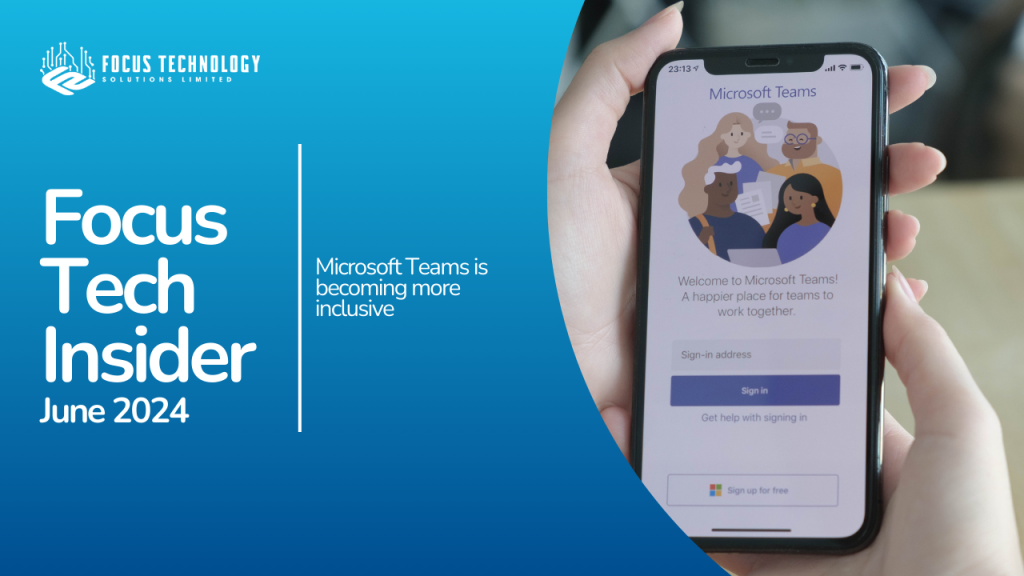Secure your Data Under Lock and Key
Data is the life bloof of your business.
That might sound dramatic but think about it for just a moment. It’s everything from customer profiles and financial transactions to confidential business plans and intellectual property.
Realistically, your success and reputation hinge on how well you protect your data.
Why does it need protecting? Every day, your employees access and share sensitive information across various devices and networks. And while this connectivity boosts productivity, it also exposes you to bad people with a common goal: They want to steal as much of that data as possible.
That’s where encryption comes into play.
Imagine your data as a treasure chest hidden in a cupboard. You can’t just leave it there without any protection and expect it to stay safe. Encryption is the lock on that chest, and only those with the right key can access its contents.
At its core, encryption is the process of converting your data into a scrambled, unreadable format. This transformation happens using complex mathematical algorithms, rendering your information useless to anyone without the decryption key. It’s like writing a secret message in a code that only you and your intended recipient can understand.
Encryption should be a non-negotiable part of your business’s data security strategy. Here’s why…
Data privacy compliance
Regulatory bodies like GDPR require businesses to protect sensitive customer and employee data. Failure to do so can lead to hefty fines and legal repercussions. Encryption helps you stay on the right side of the law by ensuring data privacy.
Safeguarding reputation
A data breach or leak can irreparably tarnish your brand’s reputation. Customers and partners trust you to keep their information secure. Encryption is a visible sign of your commitment to safeguarding their data.
Mitigating insider threats
Unfortunately, not all threats come from external sources. Sometimes, it’s an employee’s lost laptop or a disgruntled staff member looking to cause harm. Encryption acts as a safety net, ensuring that even if a device falls into the wrong hands, your data remains protected.
Preventing unauthorised access
Cyber criminals are constantly probing for vulnerabilities in your network and devices. Encryption acts as a barrier, making it incredibly challenging for them to make sense of any stolen data.
Business continuity
In the face of a data breach or cyber attack, the ability to recover quickly and minimise damage is crucial. Encryption ensures that even if an incident occurs, the data itself remains secure, allowing you to focus on recovery rather than damage control.
The cost of neglecting encryption
……………………………………………………………………………………………………………………………………………………………………………………..
As the saying goes, “You don’t know what you’ve got until it’s gone.” Here are some examples of risks facing all businesses, that highlight the importance of encryption in protecting your valuable data.
Data breaches
Picture this: Your company’s database, containing sensitive customer information, has been breached by a cyber criminal. Names, addresses, and credit card numbers are now in the wrong hands. The cost of such a breach includes not only financial losses but also reputational damage that might be impossible to fully repair.
With encryption, even if a breach occurs, encrypted data remains useless to unauthorised individuals.
Lost or stolen devices
A company laptop containing unencrypted files gets left behind in a coffee shop. Or an employee’s smartphone with confidential emails and documents goes missing. Without encryption, you’re essentially handing over your data on a silver platter to anyone who stumbles upon it.
Encrypting data on devices ensures that even if they fall into the wrong hands, your information remains safe from prying eyes.
Insider threats
Sometimes, the biggest threats come from within. An unhappy employee with access to sensitive data decides to walk out the door with it. Encryption can prevent malicious intent from becoming a costly nightmare.
Encryption helps you maintain control over your data, preventing unauthorised access even by employees.
Legal consequences
Data privacy laws require you to protect sensitive information. If you neglect this duty, you might find yourself facing legal consequences, which can include huge fines that could cripple your business.
Encryption is your ally in meeting the stringent data protection requirements of privacy laws.
The impact of a data breach or security incident goes far beyond just financial losses. It has a ripple effect that can be felt across your entire business ecosystem:
Loss of trust
Customers and partners may lose faith in your ability to safeguard their data, leading to a drop in sales and partnerships.
Operational disruption
Dealing with the aftermath of a data breach can disrupt your business operations, leading to lost productivity and additional costs.
Legal battles
Lawsuits and regulatory fines can drain your financial resources and damage your reputation further.
Recovery costs
Restoring your systems and regaining lost data is a costly and time-consuming process.

How it works
………………………………………………………………………………………………………………………………………………………………………………………………………………………………………………………………………..
While encryption might seem like a complicated, mystical art, it’s straight forward once you get the hang of it. At its core, encryption is about taking plain, readable data (called plaintext) and transforming it into an unreadable, scrambled format (called ciphertext). This transformation is achieved using mathematical algorithms and a secret key.
There are two primary types of encryption:
Symmetric encryption
In symmetric encryption, the same key is used for both encryption and decryption. It’s like having a single key that can both lock and unlock a door. While it’s efficient and fast, the challenge is securely sharing the key with the recipient. If someone intercepts the key during transmission, your data could still be compromised.
Asymmetric encryption
Asymmetric encryption uses a pair of keys: a public key and a private key. The public key is used for encryption, while the private key is kept secret for decryption. It’s like having a padlock with one key that everyone can use to lock a box, but only you have the key to unlock it. This approach is more secure for sharing encrypted data, as you don’t need to exchange a secret key.
When you want to send someone encrypted data, here’s how it typically goes:
Your recipient generates a pair of keys – a public key (which they share with you and the world) and a private key (which they keep secret).
You use their public key to encrypt the data you want to send.
You send the encrypted data to your recipient.
Your recipient uses their private key to decrypt the data and read your message.
The beauty of asymmetric encryption is that even if someone intercepts the encrypted data and has access to the public key, they can’t decrypt it without the private key. This makes it a powerful tool for secure communication and data sharing.
One essential aspect of encryption is key management. Safeguarding your keys is as important as protecting your data. Losing a key or having it fall into the wrong hands can render your encryption useless.
Encryption for your business
When it comes to encryption, you have several tools and technologies at your disposal. Here are some key considerations:
File and folder encryption
Operating system tools: Most modern operating systems offer built-in encryption tools, such as BitLocker for Windows and FileVault for macOS. These are excellent options for encrypting entire drives or specific folders.
Third-party solutions: There are also third-party encryption software options like VeraCrypt and AxCrypt, which offer more advanced features and cross-platform compatibility.
Email encryption
PGP/GPG: Pretty Good Privacy (PGP) and GNU Privacy Guard (GPG) are popular solutions for encrypting email communications. They use a combination of symmetric and asymmetric encryption to keep your emails private.
Email service providers: Some email service providers, like ProtonMail and Tutanota, offer end-to-end encryption by default. Consider using these services for sensitive communications.
Full disk encryption
Whole disk encryption: Tools like BitLocker, FileVault, and LUKS (Linux Unified Key Setup) allow you to encrypt your entire disk or device, ensuring that all data on it is protected.
Cloud storage encryption
Client-side encryption: Some cloud storage providers offer client-side encryption, which means your data is encrypted on your device before it’s uploaded to the cloud.
Communication encryption
SSL/TLS (Secure Sockets Layer/Transport Layer Security): Ensure that your website and online services use SSL/TLS encryption. This is essential for secure data transmission over the internet, especially for e-commerce and login systems.
Virtual Private Network (VPN): Implementing a VPN for your business can secure communication between remote employees and the company network, keeping data safe from prying eyes.
Encryption best practice
Implementing encryption is only half the battle. Here’s how to ensure you’re using encryption effectively:
Use strong, unique passwords or passphrases for encryption keys.
Implement a robust key management system to protect encryption keys from theft or loss.
Keep your encryption software and systems up to date with the latest security patches to avoid vulnerabilities.
Ensure that your employees understand the importance of encryption and how to use it properly. Conduct regular security awareness training.
Protect devices that contain encrypted data physically, such as laptops and servers, by implementing access controls and locks.
Don’t forget to encrypt your backups. If your primary data is protected but your backups are not, you’re still at risk.
Regularly test your encryption mechanisms and conduct security audits to identify and address vulnerabilities.
While encryption is crucial for data security, it’s essential to strike a balance between security and usability. Overly complex encryption processes can hinder productivity and frustrate employees. Finding the right tools and workflows that provide robust security without becoming a burden is key.
Choosing the right encryption standard
………………………………………………………………………………………………………………………………………………………………………………………………………………………………………………………………………
In the world of encryption, several standards and algorithms have been developed to safeguard data. Selecting the right encryption standard depends on your specific needs and use cases. We can help you choose the right standard for your needs, but here are some factors to consider…
Data sensitivity: If you’re dealing with highly sensitive data like medical records or financial information, opt for strong encryption standards like AES-256 or RSA with longer key lengths.
Performance: Consider the performance impact of encryption on your systems. AES is known for its speed and efficiency, making it a good choice for many applications.
Compatibility: Ensure that the encryption standard you choose is compatible with your existing systems and software. Compatibility issues can lead to headaches down the road.
Regulatory compliance: If your business operates in a regulated industry (e.g., healthcare or finance), check if there are specific encryption requirements you must meet to comply with regulations like GDPR.
Usability: Consider the ease of implementation and user-friendliness of the encryption solution. Complicated encryption processes may lead to errors and decreased productivity.
Future-proofing: Think about the long-term viability of the encryption standard. Security threats evolve, so choose a standard that can adapt and remain secure over time.
As with a lot of cyber security, encryption is not a one-and-done task. It’s an ongoing process that requires vigilance and adaptation. If it’s something that needs attention in your business, let us help you get it right the first time.
This is how you can get in touch with us:
CALL: 01942 835 912
EMAIL: help@focustechs.co.uk
WEBSITE: www.focustechs.co.uk











